QuestionOkay, so I have this cat, and he is 15 years old. About a year and a half ago he was starting to get really loose stool and lose a lot of weight so we took him to the vet, got an exploratory surgery, and he was diagnosed with IBD. The doctor gave us Prednisolone. I read on the Internet that you can do like special diet things, but our vet never really suggested any diets for us, they just gave us the pill and sent us off. I was wondering if you might be able to suggest some diet changes we might try that would help him. I was also wondering, if we get the right diet and the right medication, can he start to gain weight back?
AnswerHi Megan,
Once you find the right treatment and his diarrhea is stopped, he should put most of his weight back on. It is a slow process, however. I'm not sure what his degree of malnutrition is, but you may want to ask your vet if a calorie and vitamin supplement such as Nutri-Cal would be appropriate for him right now. This is a sweet-tasting gel that helps provide extra nutrition to underweight animals.
Diet is usually considered a large part of treating any kitty with IBD. Most vets feel that cats won't do their best if their diet isn't addressed, because this is felt to be a big part of the problem. So while the majority of IBD patients will need medicinal treatment, it's not ALL they need. A diet change is in order for most cats. Many cats will require prescription foods that contain ingredients that the cat has never been exposed to before. These are alternative sources of proteins and carbohydrates that seem to be less offensive to the digestive tract than sources used in standard foods sold on the market. Prescription foods use items like venison or duck for protein, and sweet potatoes and peas for carbohydrates. These are also found in many grain-free foods, like Taste of the Wild. You may want to check into that food (www.tasteofthewildpetfood.com).
However, read the label on the food you're feeding your cat right now. Corn is the most difficult ingredient to digest, and if your food contains this, simply switching to a chicken and rice formula might help. Rice is the easiest grain to handle, and even the prescription foods for sensitive stomachs tend to be chicken and rice-based. If he doesn't respond well to a chicken and rice or grain-free food, talk to your vet about a prescription food.
Sometimes it isn't the type of grain that's used in the food that gives cats the most trouble, but the meat. They'll have a problem digesting food no matter what kind of meat is used, and they require that the protein is hydrolyzed before they eat it (broken down into amino acids - essentially, pre-digested). The vet will have a food like this, such as Hill's z/d. A lot of cats will be able to go on a lower dose of prednisone once their proper diet is found.
Remember, slowly change your cat's diet over the course of a couple weeks so that you don't worsen his diarrhea. And give him a full month to respond to the diet change. Don't get discouraged if one diet doesn't work. It can take many diets before you find one that works well for him.
Good luck!
Jessica

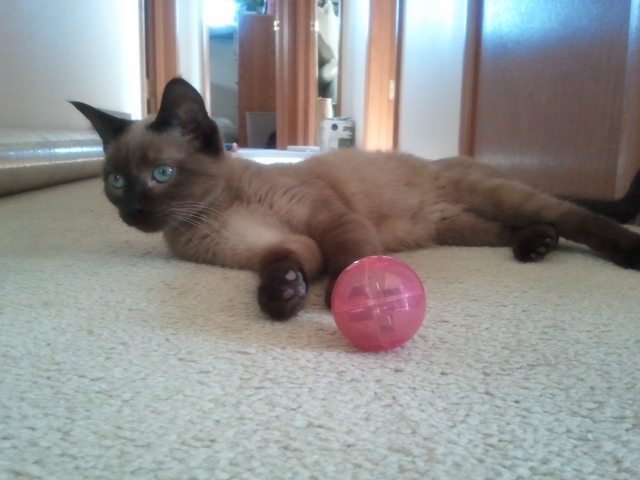 Cinnamon, mysterious Siamese
Question
Cinnamon - mysterious
Hi, I picked you
Cinnamon, mysterious Siamese
Question
Cinnamon - mysterious
Hi, I picked you
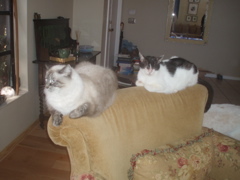 My 12 year old indoor/outdoor male escaped 2 weeks after a recent move
QuestionEefa and our lost blac
QUESTION: We trie
My 12 year old indoor/outdoor male escaped 2 weeks after a recent move
QuestionEefa and our lost blac
QUESTION: We trie
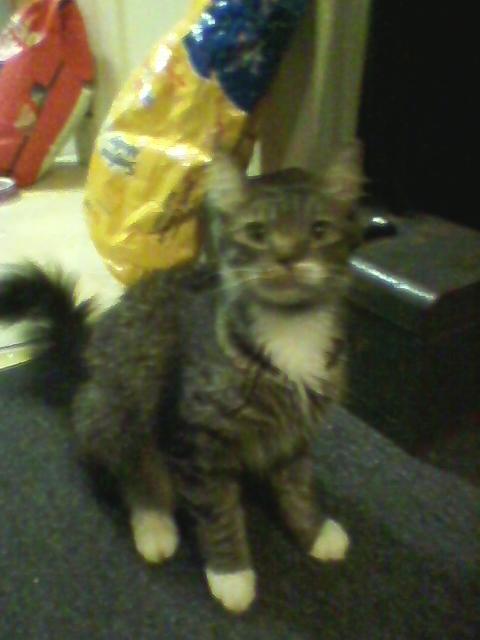 cat identification
Question
pic was from my phone,
i am currently f
cat identification
Question
pic was from my phone,
i am currently f
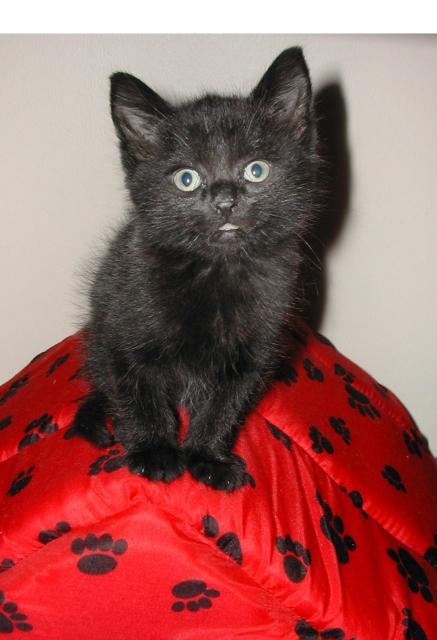 kittens nails
QuestionQUESTION: Hi Pati,
Its me again Xris. I seek y
kittens nails
QuestionQUESTION: Hi Pati,
Its me again Xris. I seek y
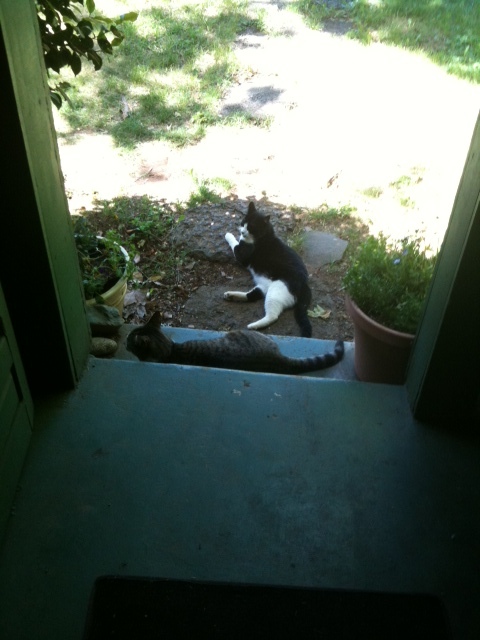 2 sibling cats. one of the brothers just passed.
Question
Their last day togethe
how should i dea
2 sibling cats. one of the brothers just passed.
Question
Their last day togethe
how should i dea